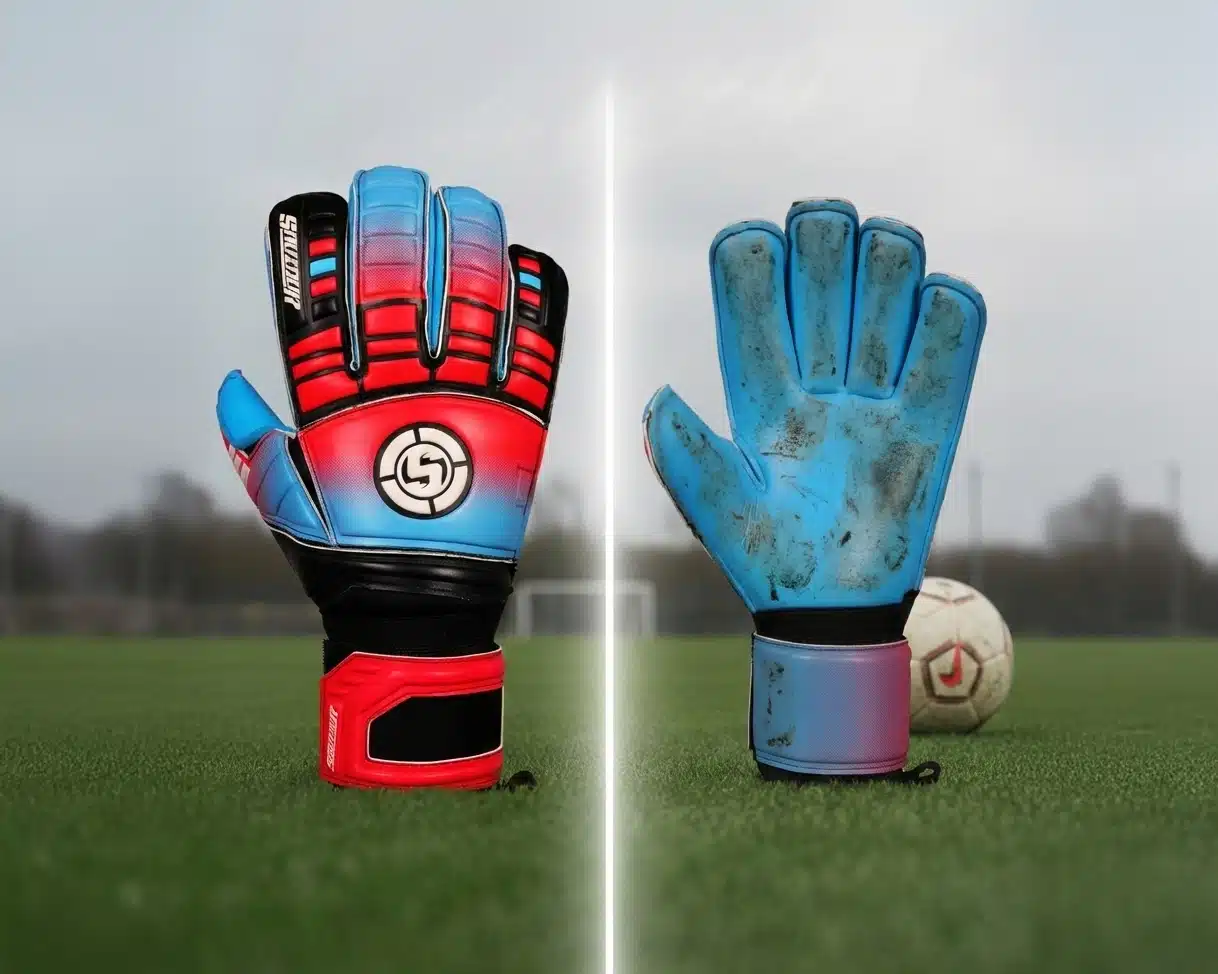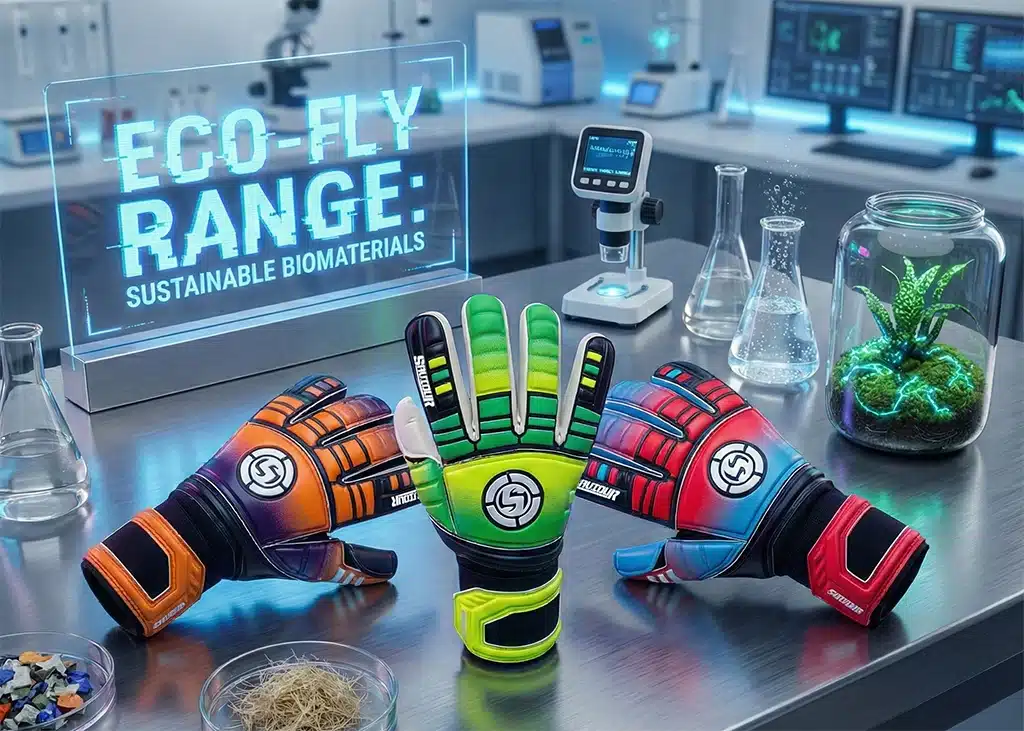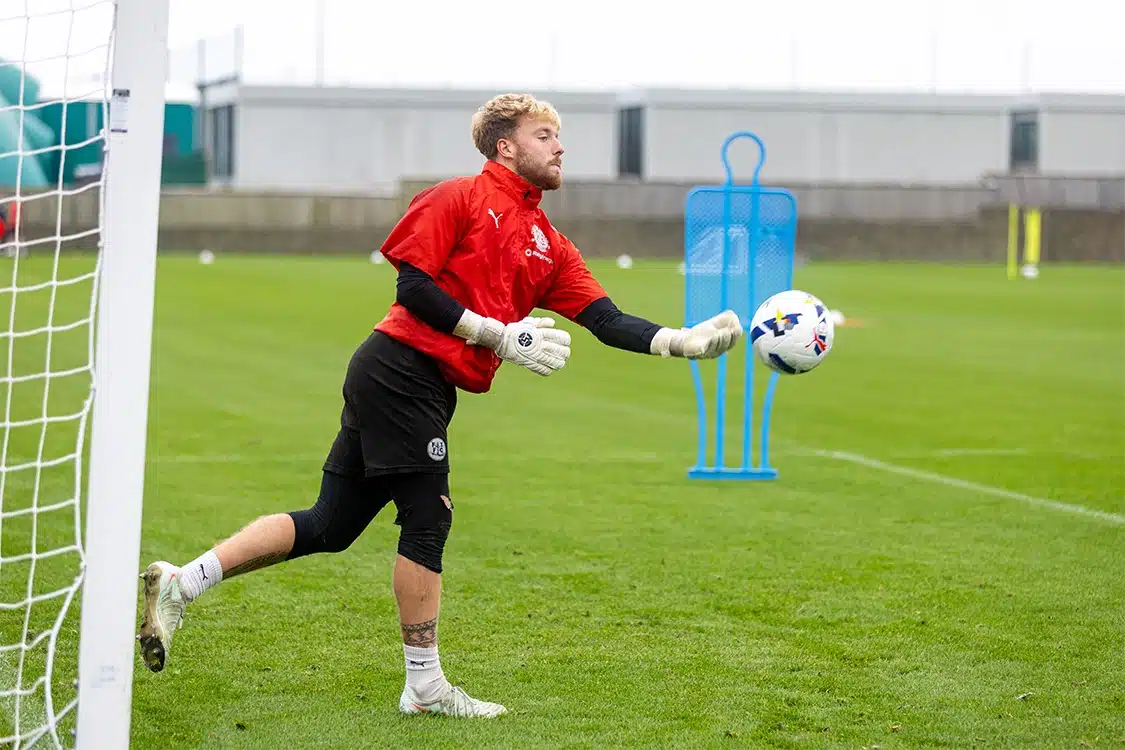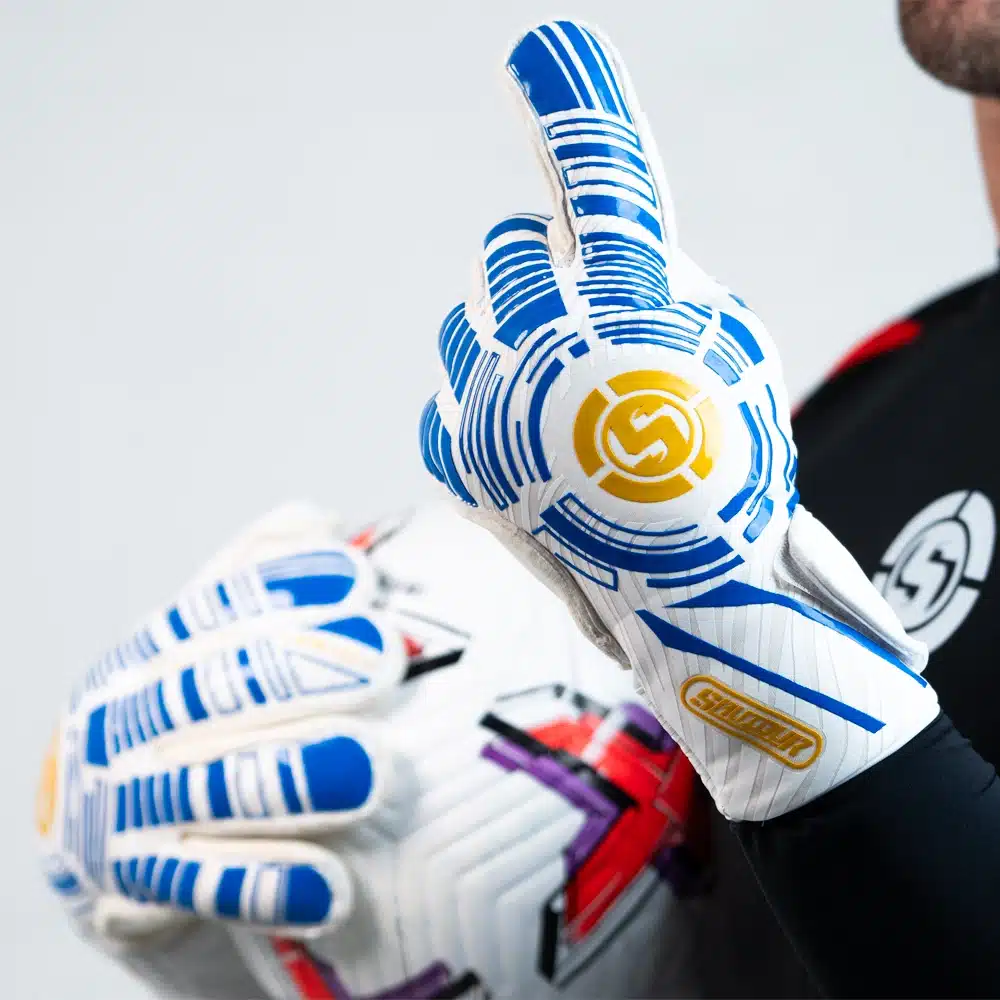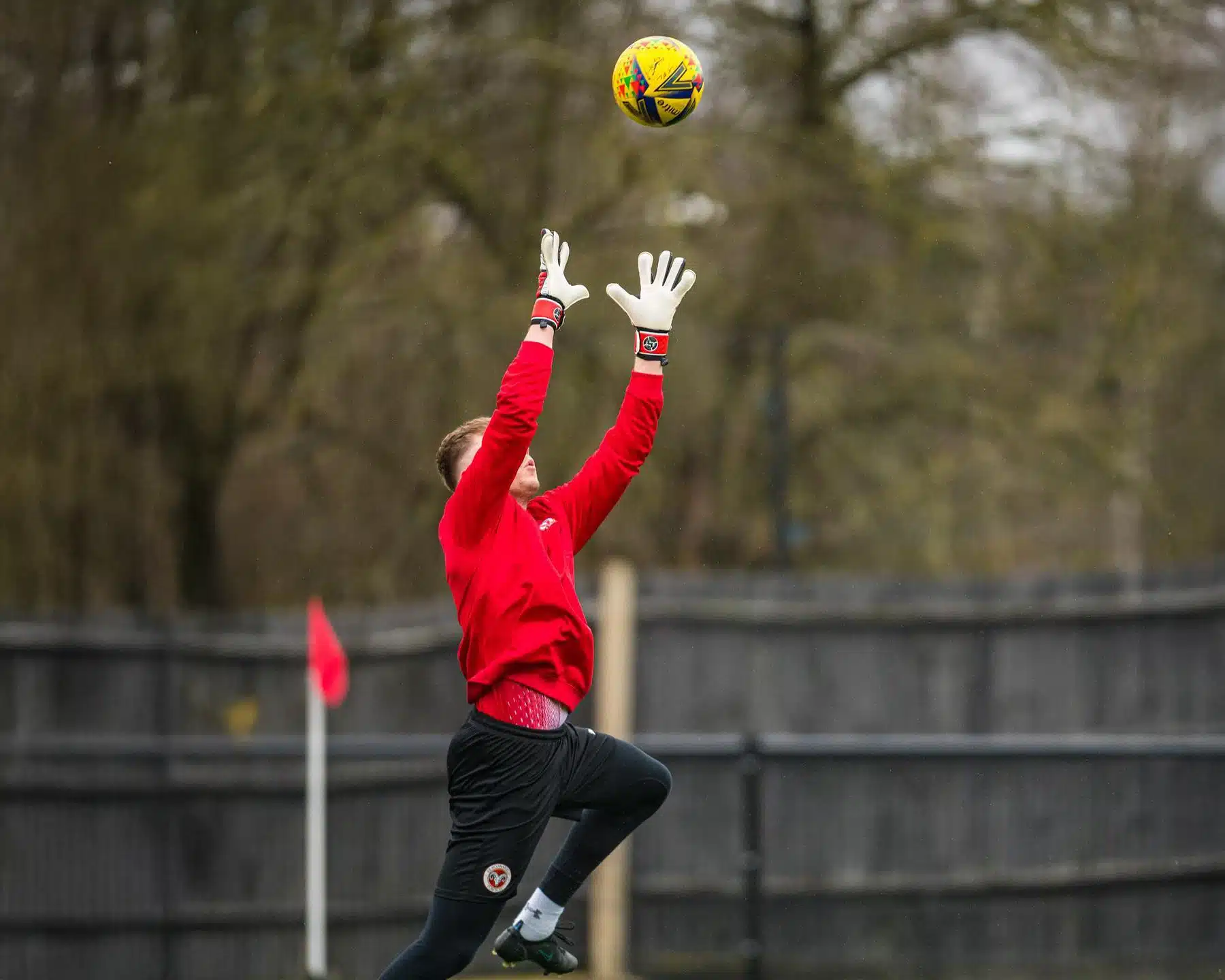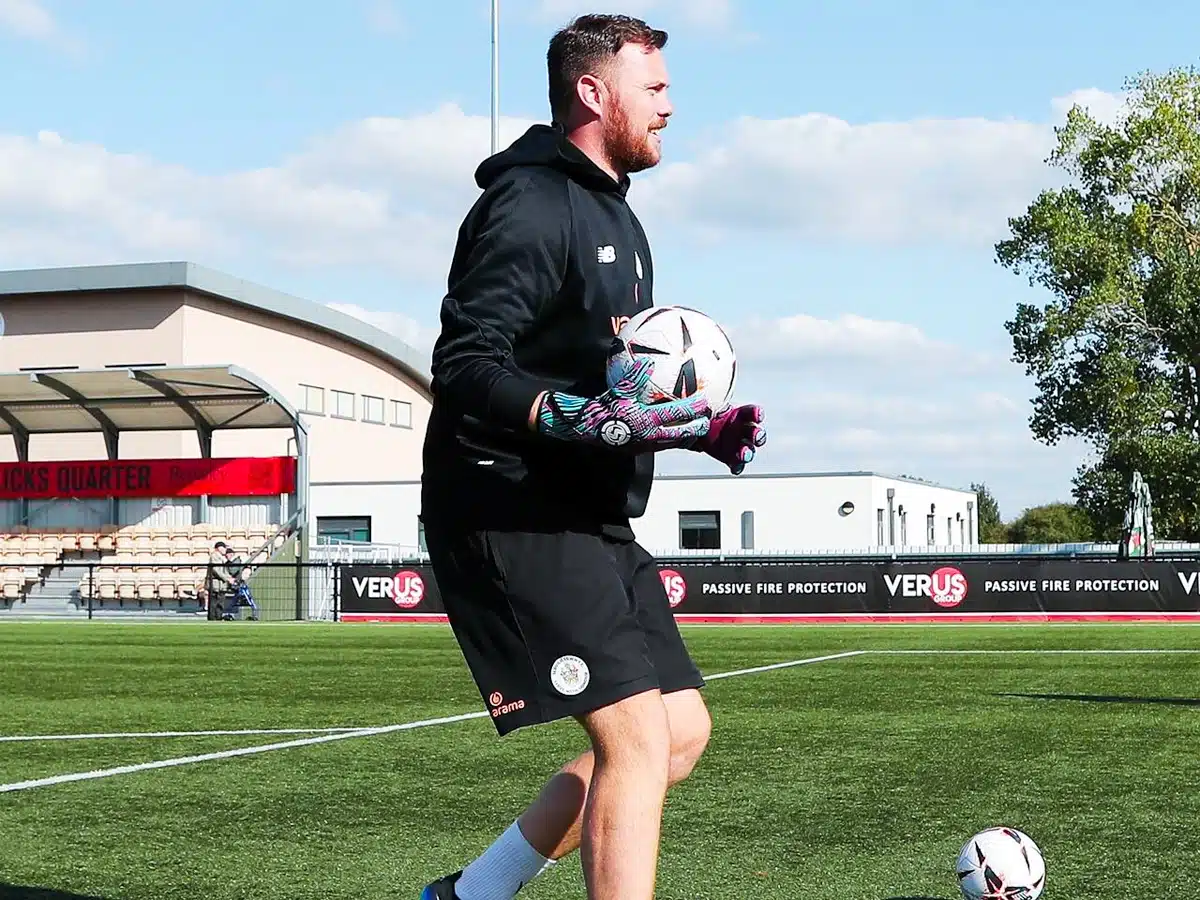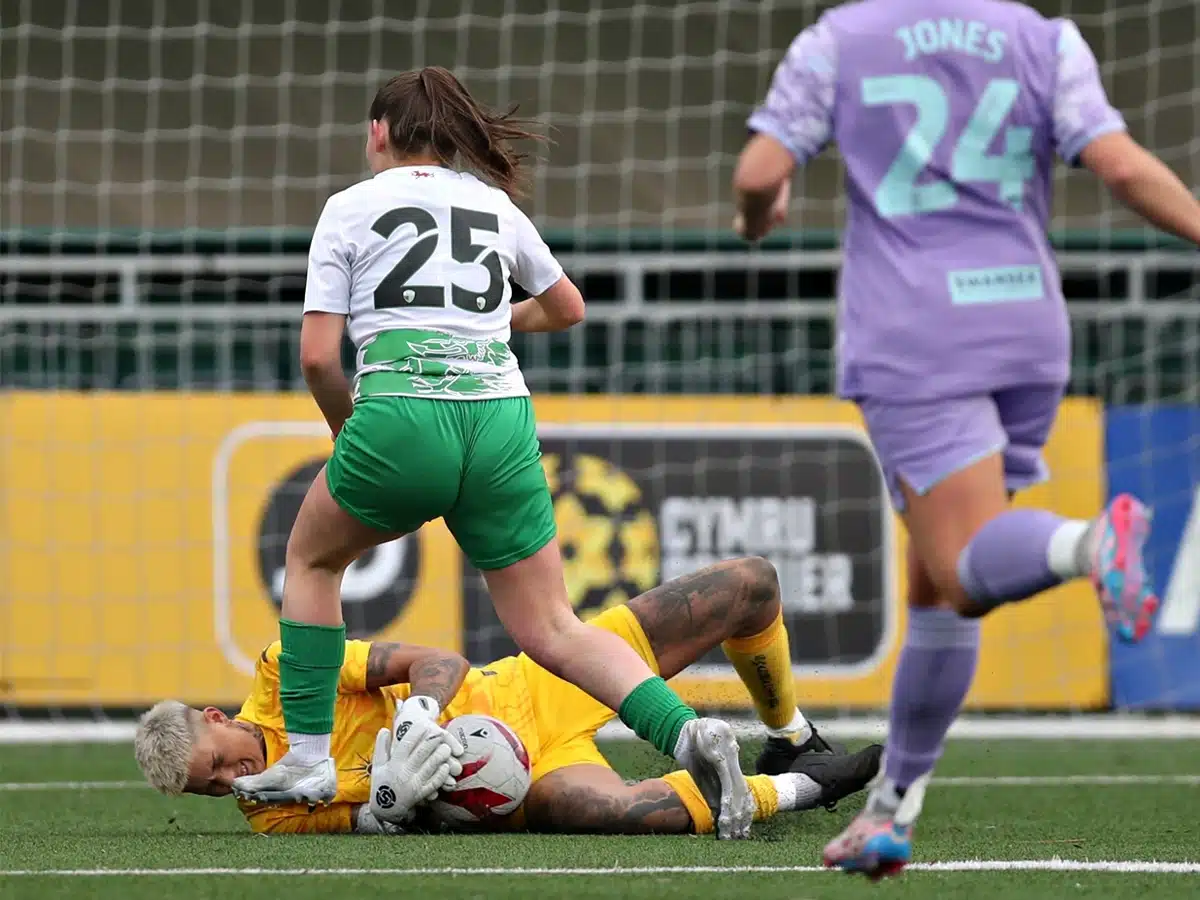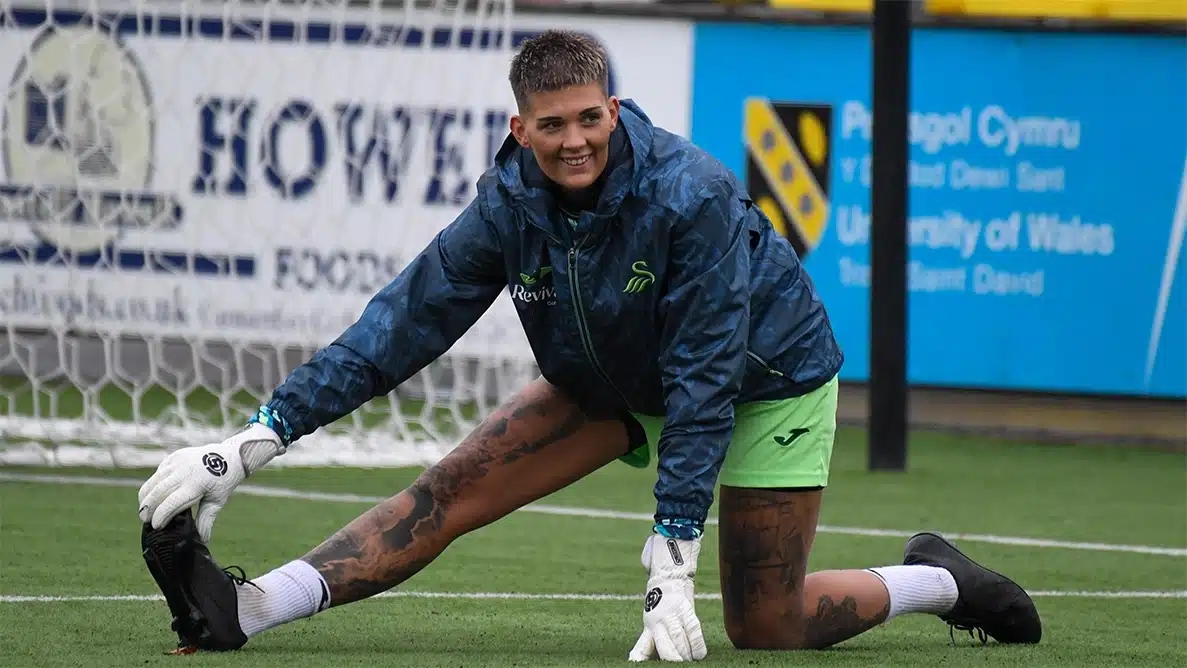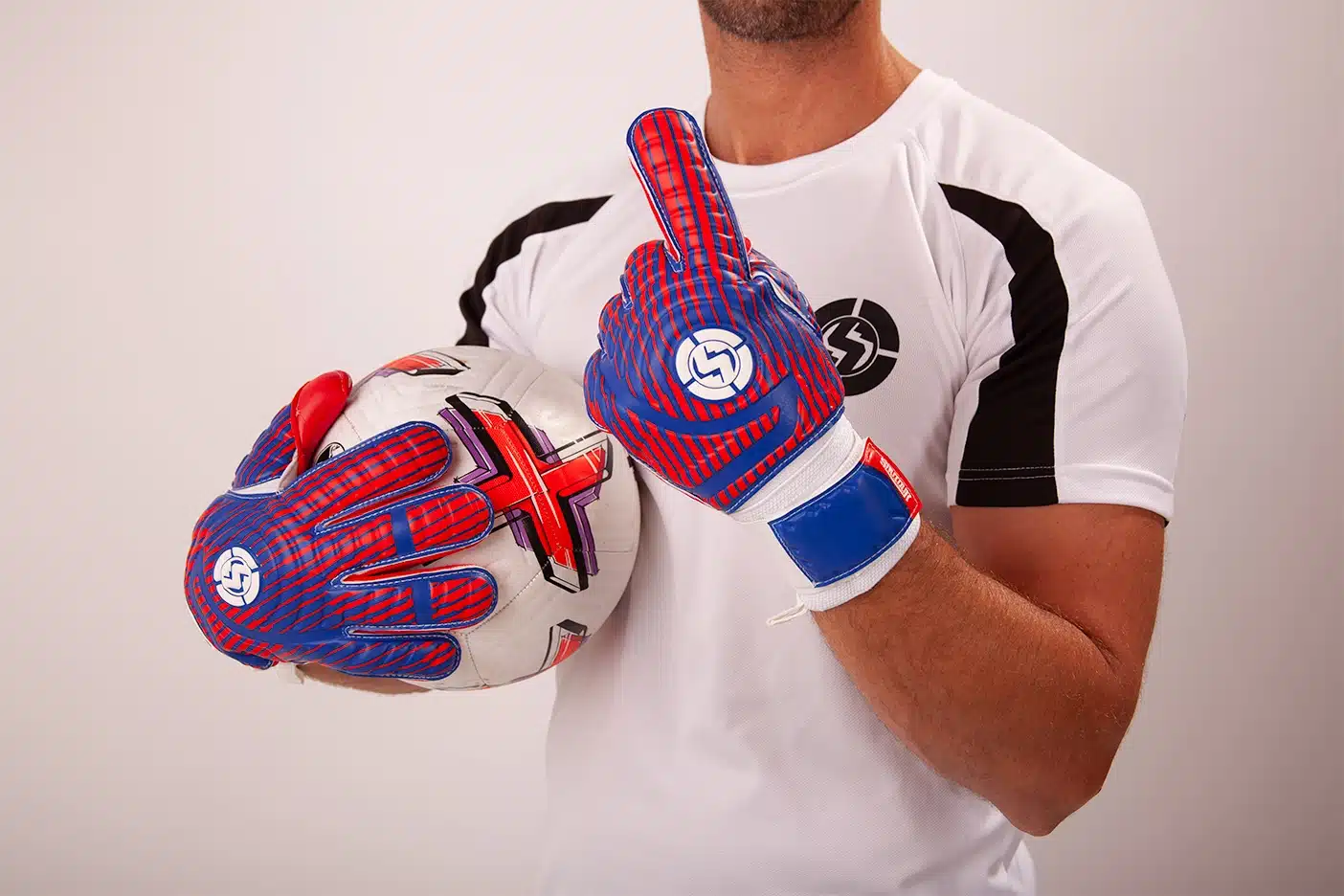The Pros and Cons of Using Your Hands to Get Up from a Dive: Impacts on Goalkeeper Gloves Latex Wear

Feel the grip! Discover our sticky goalkeeper gloves—designed for unmatched control.
Goalkeepers are always on the lookout for techniques to enhance their agility and effectiveness between the posts. One such debated technique involves using the hands to push off the ground when getting up from a dive. While this method may seem trivial, it has notable implications on both performance and the longevity of goalkeeper gloves.
How This Technique Affects Glove Longevity
Pros:
Using your hands to assist in rising from a dive can offer immediate benefits in terms of speed and readiness. By placing one hand on the ground, goalkeepers can push themselves up faster, making them ready to face the next shot or move into position quickly. This method leverages body mechanics efficiently, which is crucial during fast-paced matches.
Cons:
However, frequent contact with the ground can cause significant wear and tear on the latex palms of goalkeeper gloves. Latex, while providing exceptional grip, is also notably delicate. Frequent friction against the turf or pitch can degrade the latex quickly, leading to a loss of grip and decreased effectiveness of the gloves. This wear could compel goalkeepers to replace their gloves more frequently, which is an important consideration given the cost of high-quality grip gloves.
Impact on Performance and Safety
Pros:
The immediate benefit of quicker recovery time can be a game-changer. Being able to rapidly regain standing position means goalkeepers can adjust to on-field developments more effectively, maintain focus, and prepare for subsequent plays without delay.
Cons:
Relying heavily on hands for getting up may inadvertently place the goalkeeper at risk of wrist injuries. The wrists are not designed to bear significant impact or weight abruptly, and this technique can strain these joints over time, potentially leading to sprains or more severe ligament damage.
Best Practices for Glove Maintenance
Given the drawbacks related to glove durability when using hands to push off the ground, proper care becomes crucial. Here’s how to maintain grip and extend the life of your gloves:
Routine Cleaning: Regular cleaning of your goalkeeper gloves is essential to maintain grip and overall integrity of the latex. After each game or training session, gently wash the gloves to remove dirt and grime that can degrade the latex if left unchecked.
Proper Drying: Never dry your gloves on a radiator or in direct sunlight. High heat can cause the latex to become brittle and crack. Instead, let them air dry naturally, away from direct heat sources.
Correct Storage: Store your gloves in a cool, dry place away from direct sunlight. It’s beneficial to keep them slightly moist and in a glove bag to prevent the latex from drying out and cracking.
Rotating Gloves: If feasible, rotate between pairs of gloves to reduce wear and tear. Using a training pair for practices and saving your best pair for games can significantly extend the life of your gloves.
Check out out Glove Care Section.
Conclusion: Weighing the Benefits Against the Wear
While the technique of using your hands to get up from a dive can enhance performance by enabling quicker transitions and readiness, it undeniably increases the wear on your goalkeeper gloves. Every goalkeeper must weigh these factors based on their playing style, frequency of play, and budget for gloves. If you choose to use this method, prioritizing glove care is essential to ensure that your grip gloves continue to offer the best performance during crucial saves.
Q. What are the advantages of using your hands to push off from a dive?
A. Using your hands to push off can help you regain your stance more quickly, offering a tactical advantage by preparing you for the next play faster.
Q. How does putting your hands on the ground affect your goalkeeper gloves?
A. Placing your hands on the ground can accelerate wear and tear on the latex of your gloves, potentially compromising grip quality over time.
Q. Are there any techniques to minimize glove damage when pushing off the ground?
Yes, goalkeepers can minimize damage by using minimal palm contact with the ground and instead using their fists or fingertips, which involve less abrasive contact.
Q. What are the disadvantages of relying on hand support to stand up after a dive?
A. Relying too heavily on your hands can lead to dependency on this method, which might slow down your reaction time in situations where a quick, hand-free spring up is needed.
Q. Can frequent ground contact wear out even the best grip gloves quickly?
A. Yes, frequent contact with rough surfaces like grass or turf can degrade even high-quality grip gloves more quickly, impacting both performance and glove lifespan.
SHOP SAVIOUR GK GOALKEEPER GLOVES
For more insights on goalkeeping essentials and to find your perfect pair of gloves, visit our Goalkeeper Glove Shop or for more in depth information check out our Glove Cut page, Size Guide, or Glove Care Section.
Other Relevant Article: Better Goalkeeper Decision Making


